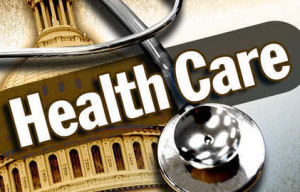Lawmakers question security of health insurance hub days from launch
Daily News Article — Posted on September 23, 2013
 (by Grant Gross, IDG News Service, PC World) – Less than three weeks before a massive U.S. government health information database for Obamacare is scheduled to go live, some lawmakers have significant concerns about the ability of the system to protect personal health records and other private information.
(by Grant Gross, IDG News Service, PC World) – Less than three weeks before a massive U.S. government health information database for Obamacare is scheduled to go live, some lawmakers have significant concerns about the ability of the system to protect personal health records and other private information.
It’s unclear if security measures are in place at the U.S. Department of Health and Human Services’ health exchange data hub, a huge IT system that will process uninsured U.S. residents’ applications for health insurance, said Representative Patrick Meehan, a Pennsylvania Republican.
“I have grave concerns from a cybersecurity standpoint,” Meehan said on Wednesday during a hearing of the cybersecurity subcommittee of the U.S. House of Representatives Homeland Security Committee.
The data hub, scheduled to go live Oct. 1, will process names, dates of birth, Social Security numbers, health conditions, and several other pieces of personal information, Meehan said.
Other lawmakers raised similar fears about the hub, a key piece of the Affordable Care Act, often called Obamacare, passed by Congress in 2010. “The issue is not if but when we’re going to have a breach of the data hub,” said Representative Mike Rogers, an Alabama Republican.
But subcommittee Democrats noted that earlier this month the HHS Centers for Medicare and Medicaid Services (CMS) completed testing of the hub and received security authorization for the system. The security testing was established by the U.S. National Institute of Standards and Technology, according to CMS.
Representative Yvette Clarke, a New York Democrat, praised CMS for focusing on U.S. residents’ privacy. State-operated health care exchanges, allowing uninsured people to shop for insurance, “will function only if people are certain that their private information – medical and financial – will be protected,” she said.
Meehan questioned how CMS completed its security assessment nearly a month ahead of schedule after the agency had “for three years failed to meet a single deadline.”
Critics have long raised concerns that the hub will collect large amounts of health and other personal information, and a breach could cause significant problems for users. Officials with President Barack Obama’s administration have said the hub will store little information, instead accessing information in other databases as needed.
Data breaches at the hub would do “irreparable harm” to users, said Stephen Parente, director of the Medical Industry Leadership Institute at University of Minnesota. There hasn’t been enough security testing on the hub, which is a “massive IT project with literally no technical precedent,” he added.
Meehan on Wednesday repeated his concerns that the hub would make an attractive target for hackers. “We face a time in which we have very sophisticated adversaries … who may wish to do us harm,” he said.
But Matt Salo, executive director of the National Association of Medicaid Directors, said directors of state Medicaid programs have been working to ensure that the hub will be secure as their systems exchange data with it.
Salo predicted the hub…will likely have a “turbulent” launch because of its size, but most of the problems will be related to its interface, not security. “The consumer experience will not be a smooth and seamless Travelocity,” he said. “We do not think security is going to be a primary concern on day one.”
Lawmakers should give the hub time to “work out the kinks,” Clarke added.
Reprinted here for educational purposes only. May not be reproduced on other websites without permission from IDG News Service or PC World. Visit the website at pcworld.com.
Questions
1. a) What is the U.S. Department of Health and Human Services’ health exchange data hub?
b) What information will the hub contain?
2. What concerns do lawmakers have about the hub?
3. What concerns have others raised over the hub?
4. How have Obama administration officials responded to the concerns?
5. a) Obamacare is a new law that requires every American to purchase health insurance or pay an annual penalty to the government. Democratic President Obama, along with Democrats in Congress, passed the law in 2010. Many Republicans opposed the law. Do you think the Republican lawmakers who question the government's ability to protect patients' private health records and other private information have legitimate concerns, or are they just playing politics? Explain your answer.
b) Has the Obama administration adequately demonstrated that our personal medical information will be secure in the Obamacare health exchange data hub? Explain your answer. (If you don't think you have enough information to answer the question, do an internet search to find out specific information from the Department of Health and Human Services on what safeguards they have established to guard our information on the health exchange data hub.)
6. In response to recent reports that the federal government (NSA) has taken personal information from citizens (cell phone calls, emails, etc.) many people say "I don't do anything wrong, so I don't care" or "My life is pretty boring, if they want to spy on me, go ahead."
Ask if he/she thinks citizens' information on the healthcare exchange data hub will be secure.
